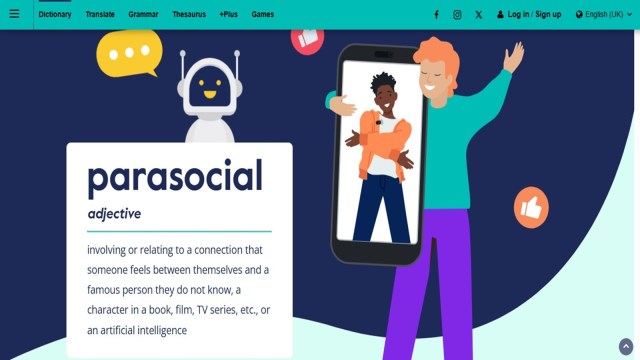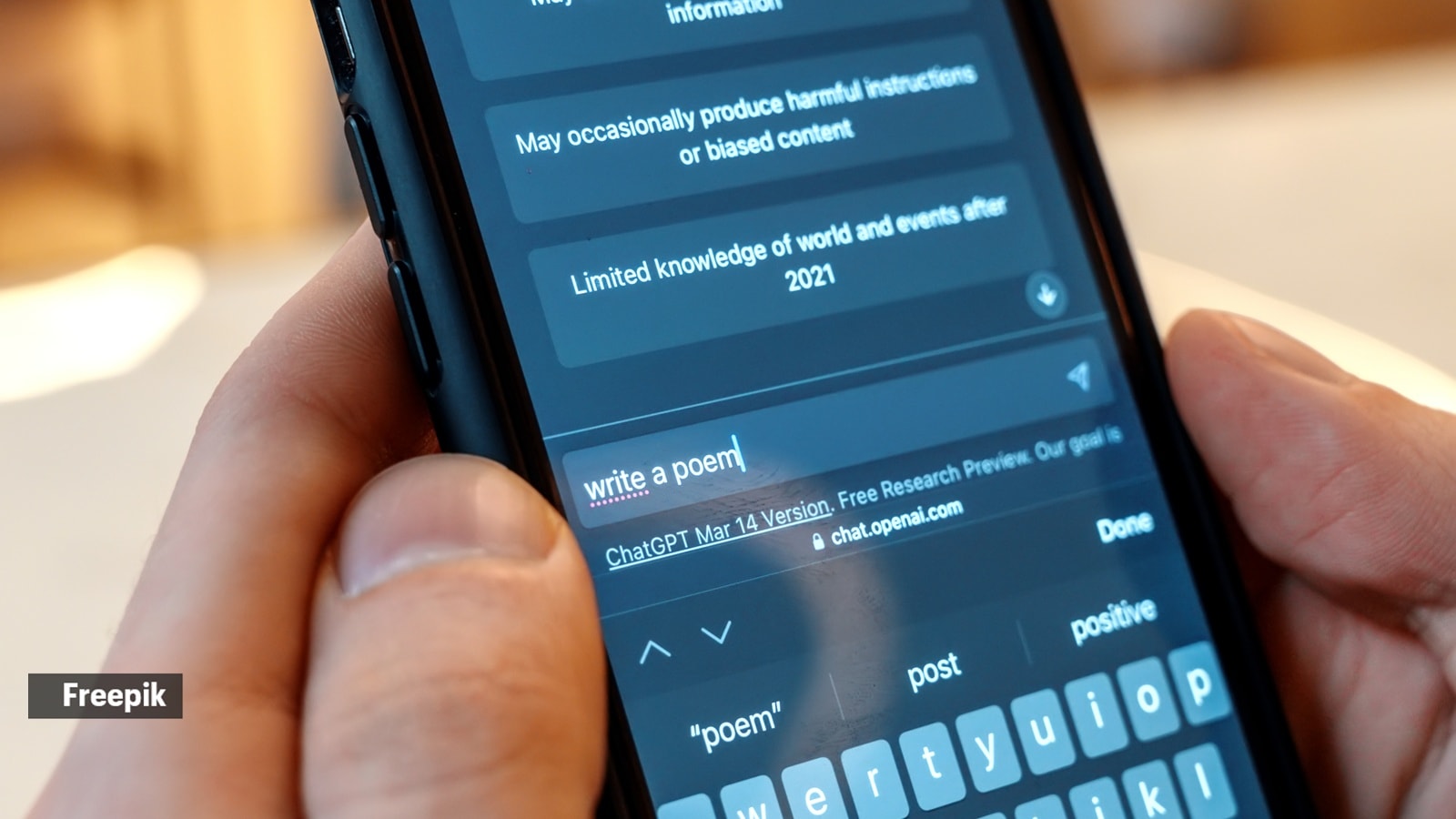📣 For more lifestyle news, click here to join our WhatsApp Channel and also follow us on Instagram
Psychologist believes Cambridge Dictionary’s 2025 Word of the Year — parasocial — highlights ‘real shift in how people form connections today’
Parasocial relationships aren’t new, but social media has intensified them because creators share their lives in ways that feel personal, accessible, and emotionally charged.
 Cambridge Dictionary names parasocial as 2025 Word of the Year (Source: https://dictionary.cambridge.org/)
Cambridge Dictionary names parasocial as 2025 Word of the Year (Source: https://dictionary.cambridge.org/)As the year draws to a close, The Cambridge Dictionary has declared the annual winner of their Word of the Year category, crowning the word ‘parasocial’ with glory. They define the word, an adjective, as “involving or relating to a connection that someone feels between themselves and a famous person they do not know, a character in a book, film, TV series, etc., or an artificial intelligence.”
According to the lexicon giant, search for the word parasocial spiked on June 30, 2025, when YouTube streamer IShowSpeed blocked a fan identifying as his “number 1 parasocial”. They further mentioned on their official website that throughout the year, conversations surrounding parasocial relationships with AI chatbots have taken centre stage, highlighting that such issues do not stay limited to just dynamics with public figures such as celebrities and influencers. Thus, zeroing in on parasocial as the winner for the title just made sense.
There were two other words running as contenders for the 2025 Word of the Year title:
Pseudonymization (noun) – a process in which information that relates to a particular person, for example, a name or email address, is changed to a number or name that has no meaning so that it is impossible to see who the information relates to.
Memeify (verb) – to turn an event, image, person, etc. into a meme (= an idea, joke, image, video, etc. that is spread very quickly on the internet)
Last year, ‘manifest’ took the crown as Cambridge Dictionary’s 2024 Word of the Year.
A psychologist weighs in
According to counselling psychologist Dr Rimpa Sarkar, Founder and Director of Sentier Mind & Sentier Wellness LLP, Cambridge Dictionary naming ‘parasocial’ as the 2025 word of the year reflects a very real shift in how people form emotional connections today.
“We are increasingly building one-sided relationships with influencers, creators, public figures and also AI – relationships that feel intimate to us, but aren’t reciprocal. Over time, this can blur boundaries, distort expectations of real relationships, and amplify feelings of loneliness,” she told indianexpress.com.
Parasocial relationships aren’t new, but social media has intensified them by allowing creators to share their lives in ways that feel personal, accessible, and emotionally charged. We can see the ill effects of it in the increase in social media trolling and doxing that public figures are subjected to on a regular basis over the most trivial things.
 Conversations surrounding parasocial relationships with AI chatbots have taken centre stage this year. (Source: Freepik)
Conversations surrounding parasocial relationships with AI chatbots have taken centre stage this year. (Source: Freepik)
Dr Sarkar believes that, in moderation, parasocial bonds can feel comforting and even supportive, but when they become a substitute for real-life connection, they can lead to “unrealistic expectations from partners, difficulty with emotional regulation, and a fragile sense of self-worth that depends on the attention of someone who does not actually know you”.
Long term, this can affect dating patterns, communication styles, and the ability to form balanced, reciprocal relationships.
Decoding long-term impact on relationships
Dr Sarkar highlights how parasocial relationships can change the face of relationships and how they stand to impact mental health in the long run:
- People may enter relationships with idealised expectations of emotional availability, shaped by creators who perform vulnerability for an audience.
- Difficulty tolerating conflict because parasocial bonds involve no real disagreements, leading to lower conflict-resolution skills.
- Increased comparison, jealousy, and dissatisfaction with partners—especially when idealised creators seem “better,” “more attentive,” or “more emotionally expressive.”
- Reinforcement of avoidant or anxious patterns: some avoid real intimacy altogether, others become overly attached to virtual figures.
- Substitution of real support systems with digital comfort creates long-term loneliness and reduced relational resilience.
Striking a balance
Dr Sarkar suggests the following tips for people to avoid the pitfalls of parasocial relationships:
- Be mindful that what you see online is curated, not intimate.
- Balance consumption with real-life connection—at least one meaningful interaction a day.
- Set emotional boundaries: if someone online influences your mood excessively, take a break.
- Notice early red flags: comparing partners, obsessing over creators, or feeling “attached” to someone online.
DISCLAIMER: This article is based on information from the public domain and/or the experts we spoke to. Always consult your health practitioner before starting any routine.
📣 For more lifestyle news, click here to join our WhatsApp Channel and also follow us on Instagram





- 01
- 02
- 03
- 04
- 05






















